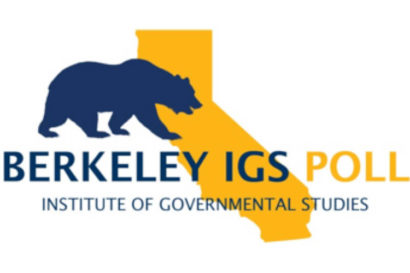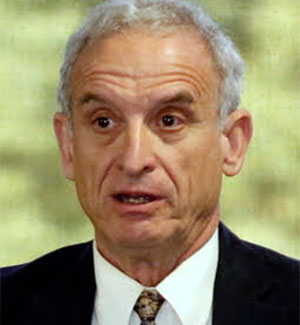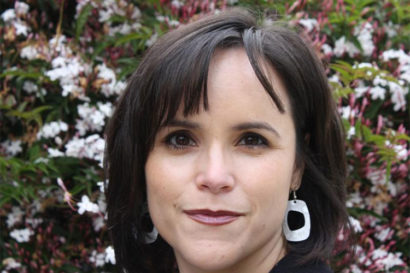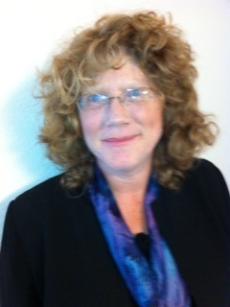Berkeley moves to the forefront in California political polling
In just the last three years, the Berkeley IGS Poll has risen to the forefront of a new era in polling, tapping into information that Californians may choose to provide — their age, race, ethnicity, gender and political affiliation — when they register to vote.
And while the poll, produced by UC Berkeley’s Institute of Governmental Studies (IGS), is focused only on California, its reputation as a leading poll has gained national prominence.
Even the media wants in. The Los Angeles Times, which had a long history of using polls generated by the University of Southern California, contracted with Berkeley’s IGS in 2018 to get a good look at midterm elections .

“The Times worked with Berkeley to poll eight tightly-contested congressional races in California in 2018,” Times Washington bureau chief David Lauter wrote in the newspaper in mid-June. “The results were highly accurate. So were several other polls that Berkeley has conducted using this technique.”
“The Times was able to run a headline a month before the election that basically said the Republicans were not ahead in any races, and that the Democrats were looking to run the table,” says Mark DiCamillo, director of the Berkeley IGS Poll. “And that’s what happened.”
Since then, the Times has made IGS its go-to polling partner for California politics. It still uses the USC polls for national studies.
While much of the polling at IGS is done on overtly political concerns — elections, immigration, tax policy, impeachment, healthcare and gun rights — some polling is done on broader issues, such as housing affordability, education, wildfire concerns, race relations, the price of gasoline and sanctuary cities.
The IGS Poll reaches out to a random sampling of voters through their publicly available email addresses. The recipients are asked if they’d be willing to take a survey about the election. Those who respond affirmatively get a survey they can complete online.

DiCamillo says that having access to the comprehensive California voter files is what makes the IGS system work.
“In general, older folks are going to respond more, if they’re at all interested,” DiCamillo says. “So, if we know that the response rate of seniors is four times that of younger voters, then we can invite four times as many younger voters.”
In the lingo of pollsters, that process is known as “stratifying the invitation.” It can only be done effectively with good information about the state’s voters, and if DiCamillo is to be believed, no state has better and more up-to-date voter information than California.
“Knowing what we do about the voter pool, we can invite people to participate at different rates,” DiCamillo says. “We have found that younger voters and Spanish-speaking voters don’t respond as much as others. Knowing that, we can invite more younger voters or more Spanish speakers, with the hope that we can maintain a poll that is balanced.”
Lisa García Bedolla, director of UC Berkeley’s IGS, says DiCamillo has “made a great adjustment to the academic environment.”
Before coming to Berkeley, DiCamillo ran the independent Field Poll out of San Francisco. He came aboard in Berkeley in 2017 when the IGS Poll, originally founded by then-IGS director Jack Citrin, was just a few years old.
“The (IGS Poll) brings good attention to Berkeley,” she says, “and, at the same time, it’s a chance to train students and faculty in public polling. I think that’s unique.”

She adds, “We’ve innovated online polling methodology to represent the full breath of California.”
David Binder, a private pollster in San Francisco who has recently worked with presidential candidate Sen. Kamala Harris, calls DiCamillo “smart and articulate and a real benefit to the state by providing accurate data.”
“It’s all about the integrity of the people who work there (at IGS) and the importance they feel to do things right,” Binder says. “They are accomplished, they don’t take shortcuts, and they know the methodology. Mark is one of the most seasoned pollsters in the country.
“There will be times you’ll see political campaigns take random potshots at them. But, then, their polls are just saying things the campaigns don’t like and are just relaying what they’ve learned. And the fact that they are from Berkeley gives it an imprimatur that is missing from other polls. Some people think of Berkeley as a hotbed of liberal activism, but in terms of polls, people give (Berkeley) extra weight and trust.”
The Los Angeles Times has asked DeCamillo to do similar polling in Arizona, Nevada and Oregon, but IGS turned those requests down because the publicly available databases in those states don’t meet the California levels of completeness.

“California has been collecting this data for a long time,” Laura Stoker, an associate professor of political science at Berkeley, says. “It’s great data collection, and it’s easily accessible, and Mark is the guru on that. You need to have up-to-date information to do the best polls, and other states don’t always have that.”
Still, as other states get better information about their voters, and as pollsters get their hands on it, the path blazed by DiCamillo likely will be well traveled. Binder says that his firm’s private polling is now conducted the same way that IGS does its polls in California, although in the other 49 states and the District of Columbia, phone polling still has to be done, at times, because those states’ data aren’t up to California standards.
And there is a financial aspect that likely will fuel the move to email-based polling.
“It is much less expensive to work this way,” DiCamillo says. “You don’t need to employ interviewers. You can send out an email at minimal expense, and if you do it right, you can produce a good random sample.”
There are limitations. Berkeley’s IGS can only survey registered voters who have opted into the email system. While they are important, particularly in terms of elections, those who register but don’t opt in make up about two-thirds of the state’s eligible voters.
And then, there are those who just don’t vote.
“Not everything is rosy,” DiCamillo says, “Take the Public Policy Institute of California. It is trying to represent not just voters, but the state’s entire adult population as a whole.”
The PPIC, which was co-founded by former UC Berkeley Chancellor Roger Heyns, does its polling by reaching out to people by phone, both landlines and cell phones.
By going 8-for-8 in the 2018 congressional races that the Times was most interested in, DiCamillo and IGS pollsters may have provided a roadmap for political polling in the future.
“Our method is limited to voters, and for what the Times wanted, it was a massive undertaking on our end,” DiCamillo says. “But that run-the-table headline wound up being what happened. (The Times was) quite impressed; I think I convinced (the Times). I know I convinced myself.”
